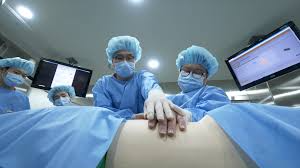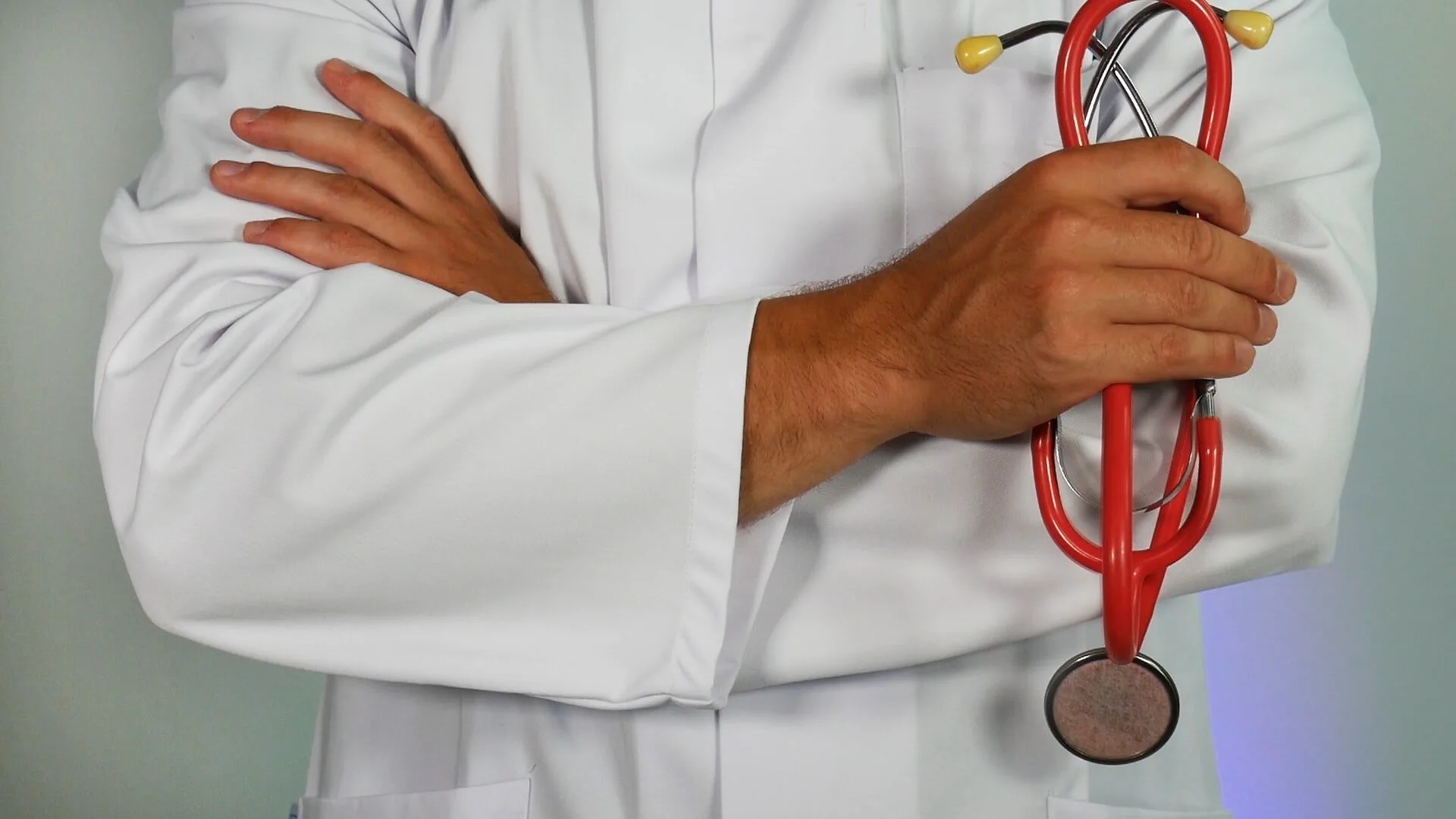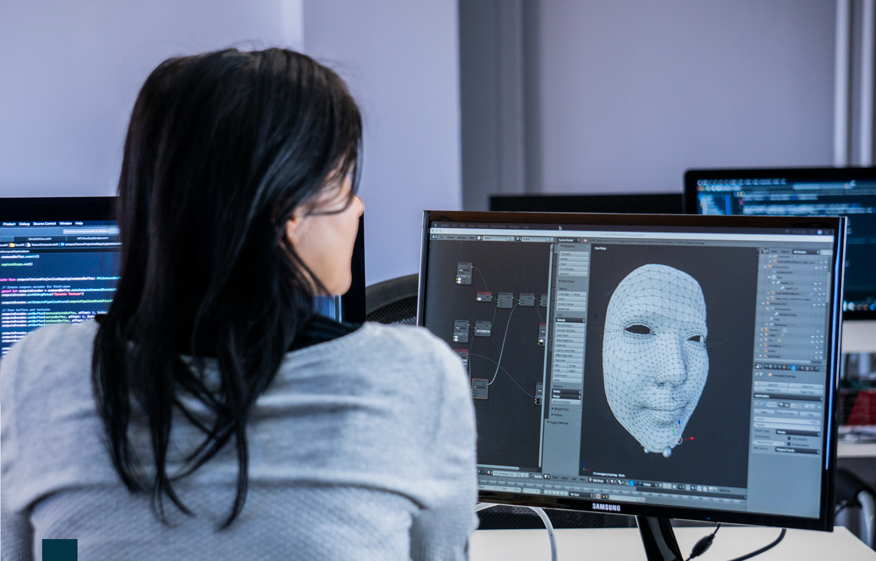Robots that can detect and classify skin cancer faster and more accurately than any dermatologist. Technology that can assess the optimum circumstances for a specific burn wound to heal. Artificial Intelligence can assist surgeons in providing patients with the best possible aesthetic treatments. It’s all based on real, live, personalized measurements. If this sounds like something from a James Cameron film, it’s not. This is what artificial intelligence (Al) has made possible. Nowadays, technology is not only used in the medical field but also greatly simplifies our lives. For example, you can watch movies on a big screen in your home. You also have a multicooker that can cook food for you, and you do not need to sit over your assignments as a student, you can just buy assignment online and still get a high grade.
Robotic Aesthetics In The Future
Globally renowned, Professor Johan Reyneke, a specialist maxillofacial and oral surgeon operating from Cape Town, explains that having the benefit of AI has unlocked avenues in surgery that would not have been possible otherwise.
“Computer-assisted treatment planning is currently called 3D visual treatment planning,” he says. “First, we obtain a three-dimensional CT scan of the facial soft tissue and bones. The images are then printed to create a 3D model. Let’s say we have a patient with a congenital dentofacial deformity (birth defect).
3D Surgery
A hard and soft tissue surgical reconstruction is planned. The required reconstruction implant can now be made into a perfect replica of the patient’s face. During surgery, the implant is positioned in the face, and it would fit accurately.”
In addition to making surgeries safer, faster, and more accurate, AI helps to take the unpredictability out of the equation. Reyneke uses the example of a patient who has a tumor in the jaw that needs to be removed.
“We will obtain a CT scan and print a 3D model of the facial structures involved. The surgery is then ‘performed’ on the model, and the reconstructive prosthesis and cutting guides. When we then walk into the operating room, we conduct the surgery according to these exact ‘instructions’.
This allows us to resect the tumor and accurately reconstruct the defect, with the prosthesis specifically designed for the patient.” The future of aesthetics is mind-blowing.
Liposuction System
When it comes to big data, physicians have the benefit of being able to analyze a massive database to optimize the way they conduct their procedures. In South Korea, 365mc hospital groups have integrated AI with their surgical instruments to create the world’s first AI-assisted liposuction system.
This methodology is already in use in surgeries such as endoscopy and colonoscopy.
 According to Nam-Chul Kim, CEO of 365mc, no mistake is allowed on the operating table. “If you make an error,” he says, “you can [cause] irreparable damage [to] the muscle tissue, or worse, necrosis sets in.”
According to Nam-Chul Kim, CEO of 365mc, no mistake is allowed on the operating table. “If you make an error,” he says, “you can [cause] irreparable damage [to] the muscle tissue, or worse, necrosis sets in.”
The system is called Motion Capture and Artificial Intelligence-assisted Liposuction (MAIL). It was designed to study billions of movements to identify which have optimum results for a successful surgery. When a surgeon later conducts a liposuction procedure or a student undergoes training, the MAIL system identifies a risky movement that can potentially cause damage to the patient.
It then sends visual and haptic alerts to the wand in the surgeon’s hand. This enables micro-adjustments to be made in real-time while optimizing final results and minimizing human error.
Artificial Intelligence and Telemedicine Overcome Future Barriers To Access
During the COVID-19 lockdown, artificial intelligence in the form of telemedicine has helped to make things more convenient for doctors and safer for patients, who were advised to stay at home. In a news release, Dr. Rajesh Patel is head of benefits and risk at the Board of Healthcare Funders. He explained that telemedicine is critical for enabling access to healthcare.
“Within the context of the coronavirus disease (COVID-19), it will minimize the risk of contamination,” he says.
In the past, the Health Professions Council of South Africa has banned all forms of telemedicine. However, they recently relaxed restrictions. This allowed doctors to see existing patients via video call during the period of the coronavirus outbreak.

Taking Care Of Your Mental Health During a Pandemic
Psychologists are also able to use both telephone calls and video to take care of their patients.
Patel notes that while this is a great move by the HPCSA, this exemption needs to be extended beyond COVID-19 because South Africa is still behind in terms of its uptake of telemedicine.
“It remains critical for the HPCSA to look at a long-term view of the application of these telemedicine guidelines to support efforts aimed at health systems reform, and to minimize unnecessary face-to-face consultations. This will reduce the burden on healthcare facilities. In turn, it will help to overcome barriers to access to health services,” says Patel.
Beauty In The Future
Dr. Anushka Reddy, the founder of Vivari Hotel and Medi-Sculpt Clinic, agrees. “I have a program that allows me to consult with patients, and not just talk to them via a Zoom call, but also to look at photos of what they’ve submitted to me, and then enhance their photos with Botox and fillers.”
She has partnered with Swedish virtual aesthetics company Crisalix, which offers an educational tool and online services to enhance communication between doctors and their patients.
It provides 3D model simulations for a variety of plastic surgery procedures. It allows patients to see exactly what they could look like after specific treatments. Moreover, patients can create this model from the comfort of their own homes.
What Will I Look Like After My Procedure? The Future You
Jaime Garcia, Ph.D. in Biomedical Engineering and CEO of Crisalix, says “What will I look like after my procedure?” is one of the most common questions from aesthetic patients. “Crisalix gives doctors the ability to allow patients to see themselves in a simulation and explore the potential outcomes of a procedure.
It provides medical professionals with a 360º solution, including both marketing and communication tools, where they can engage with more patients and provide a unique 3D Remote Video consultation service,” he says.

Better Decisions For A Brighter Future
This not only improves the planning, execution, and eventual results delivered by the physician but also helps the patient to make an informed decision
Furthermore, it can help to remove potential buyer’s remorse from the equation. Patients can go home with an image of what they might look like. They can decide whether this is something they want to follow through with.
What is remarkable about the app, says Reddy, is its precision. “It gives us accurate measurements, in terms of the proportions from the nose in proportion to the lips, and the chin, for example. It guides us, as doctors, so if we want to achieve a certain look, we can know exactly how much product is needed when we use it on someone’s face.”
Is It Worth It In The Future?
The risk of over-inflating a face, for example, is eliminated because the technology advises on the number of syringes needed for optimum results for each specific patient. It also enables the patient to plan, in terms of budget, thanks to the element of predictability.
What are the Limitations Of Artificial Intelligence?
First, it can be difficult to establish a good rapport with patients through telemedicine. This is especially important if you’re accustomed to seeing your patients in person, and cannot make the transition. Reddy believes this arrangement will work for some personalities, but not for others, who may be more comfortable one-on-one.
Then, because it’s easy to create and augment the perfect face on an app, it’s important to be careful of creating patient expectations the doctor can’t meet. “That’s what we as doctors need to guard against,” she says. In order to avoid possible disappointment, patients need to be informed that there may be a small difference between what AI promises and what doctors can deliver.

Research, Research, Research
Finally, patients need to be aware that not everyone is on the cutting edge of this technology. It is important to inquire about the physician’s expertise beforehand. “You need to make sure your doctor is doing the procedure or surgery regularly,” says Reyneke.
AI and Anti – Aging
AI is also helping scientists to better understand the answers to complex diseases that still can’t be found in a laboratory through clinical trials in mice. “We believe that, instead of trying to cure a mouse of a disease, we should look at how diseases progress in humans,” says Peter Fedichev, founder of Gero, a company that develops new drugs for aging. Gero is also focused on other complicated disorders using its proprietary-developed AI platform.

“For that, we need to look at large-scale medical data, such as medical records, to understand how young people become old, how old people become sick, and how sick people die.”
Gero aims to continue developing its AI-based platform for analyzing clinical and genetic data. They also want the platform to identify treatments for some of the most complicated diseases, such as chronic aging-related diseases, mental disorders, and others.
Gero’s AI platform can also be applied to the development of drugs in other areas. The group’s efforts are currently aimed at developing potential therapies for COVID-19.
Technology Advancing Exiting Future Ahead
The potential of the technology is already evident. Gero’s experts used large datasets of medical and genetic information from hundreds of thousands of people. They acquired data via biobanks to create a proprietary database of blood samples collected throughout the last 15 years of the patient’s life. Using this data, the Gero.ai platform determined the protein that circulates in people’s blood whose removal or blockage should lead to rejuvenation which will improve the future of aesthetics.
Subsequent experiments at the National University of Singapore involved aged animals and demonstrated mortality delay (life-extension) and functional improvements after a single experimental treatment. In the future of aesthetics, this new drug could enable patients to recover after a stroke. It could help cancer patients in their fight against accelerated aging resulting from chemotherapy.
Dr. Nir Barziali
“Gero collects large datasets of biomedical data (including clinical histories and genomics) of animals and humans. It applies advanced machine-learning methods and AI to discover the underlying reasons for human aging. The project’s team works with key experts in the field of the biology of aging and clinical medicine. This provides answers to the most important practical questions and translates the received knowledge into medical technologies to combat aging,” says Dr. Nir Barzilai, director of the Institute for Aging Research, and professor of Medicine and Genetics at Albert Einstein College of Medicine, in the US
New Paths
With the power of AI to unlock avenues previously inaccessible in areas such as health, wellness, medicine, anti-aging, surgery, and aesthetics, we look forward to accessing even more possibilities. Who knows where the next few decades will take us? In cooperation with used medical equipment marketplace – Med-Get.





![women [longevity live]](https://longevitylive.com/wp-content/uploads/2020/01/photo-of-women-walking-down-the-street-1116984-100x100.jpg)









